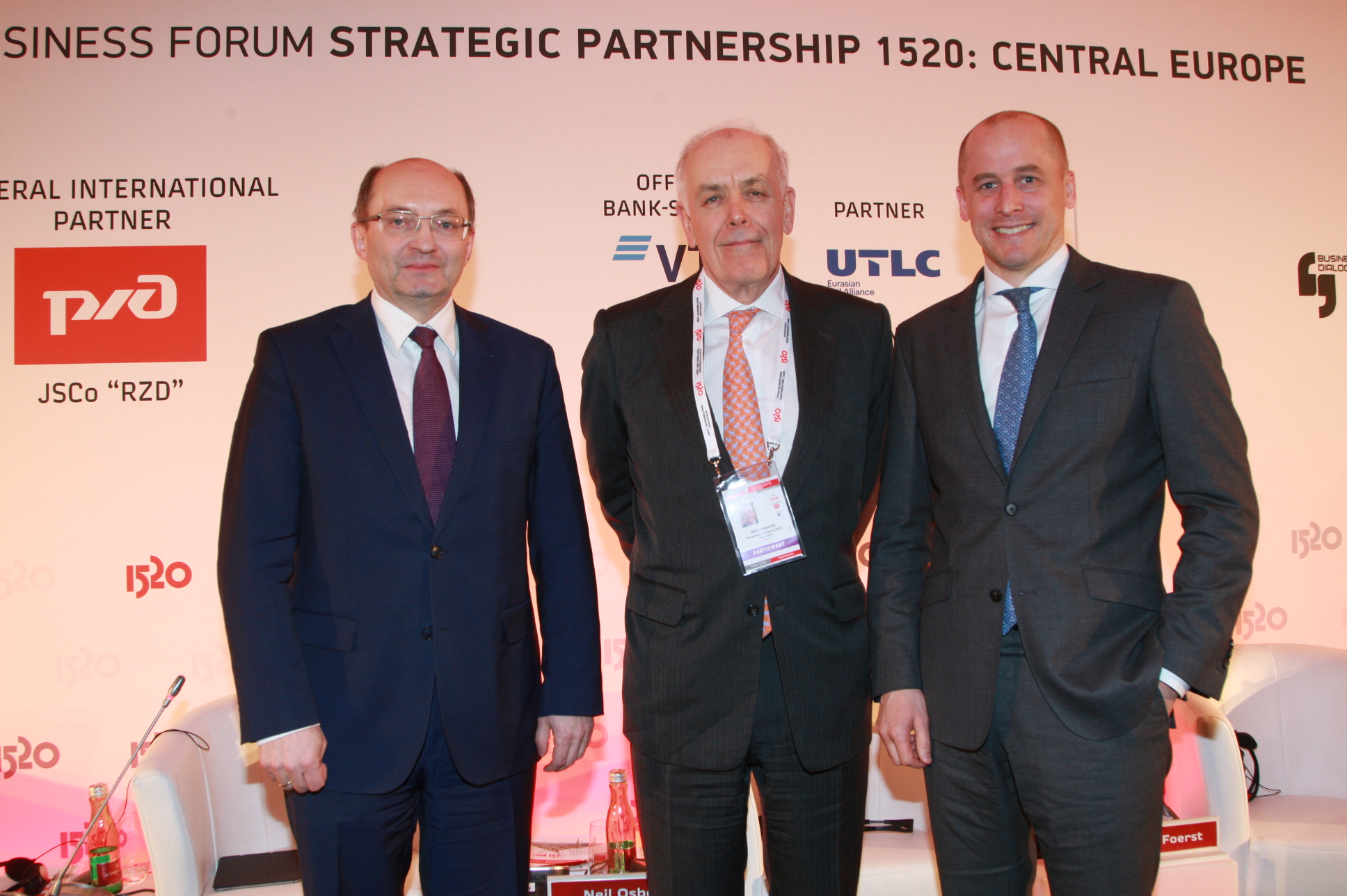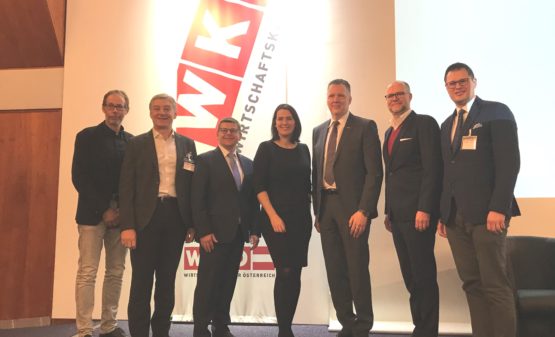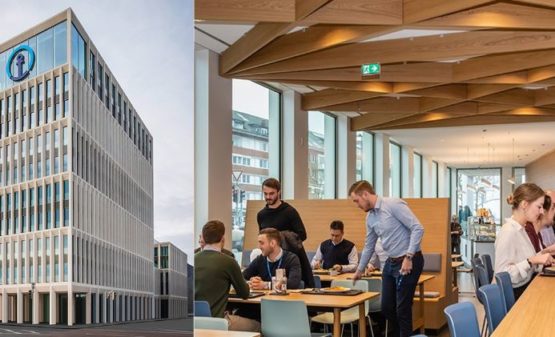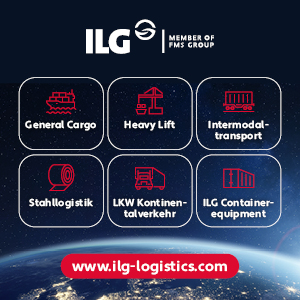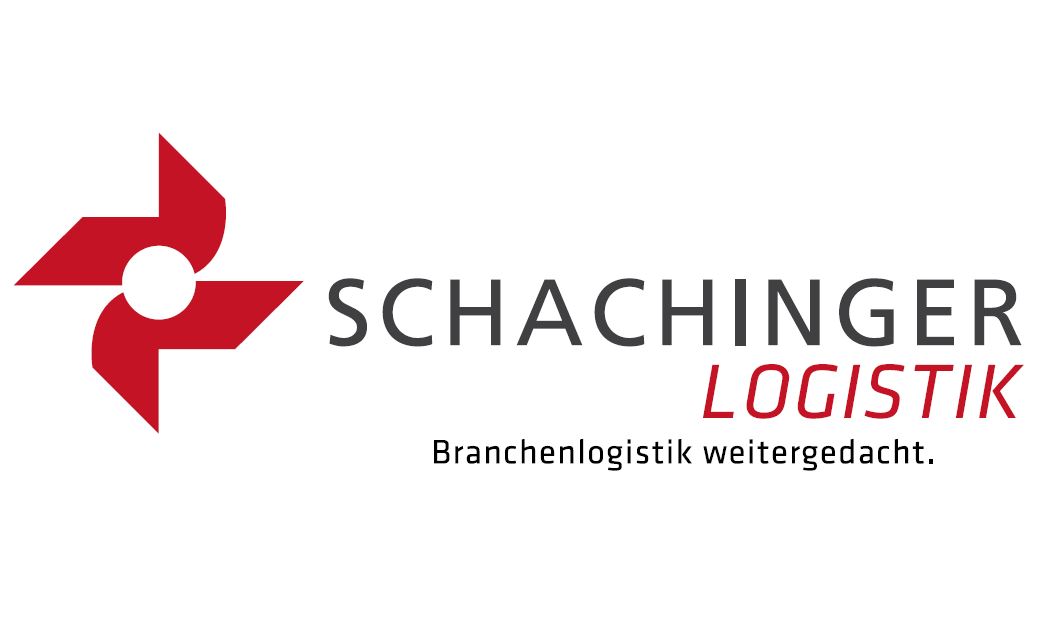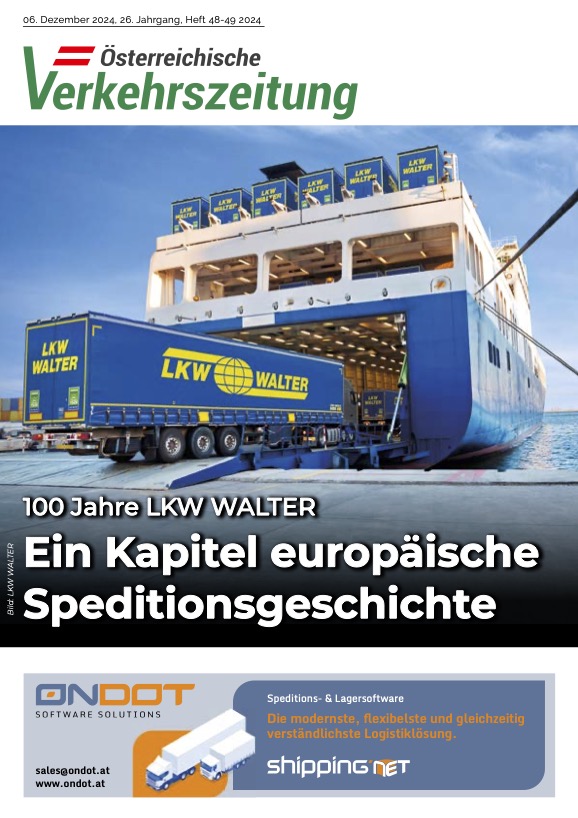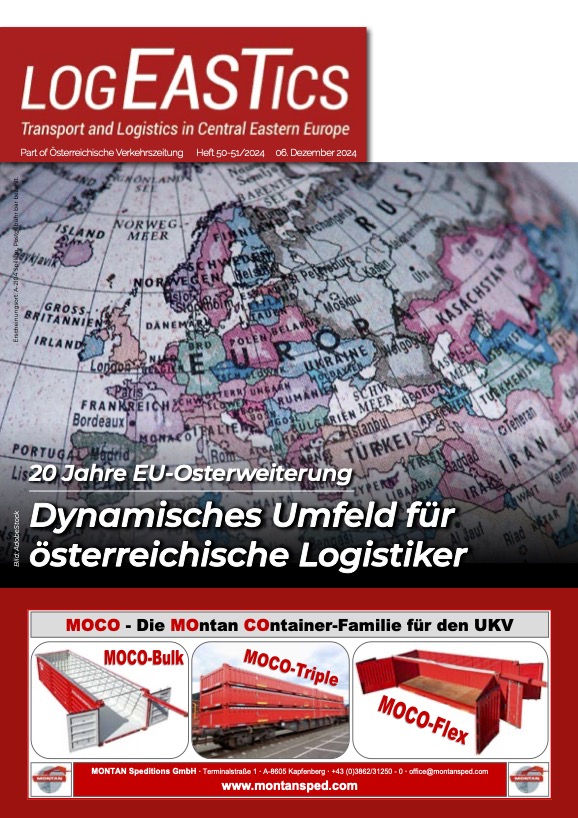The International Railway Forum “Strategic Partnership: Central Europe” came to its end on February 22nd. For two days more than 400 international representatives from the rail industry, politics and industry discussed the development and modernisation of rail infrastructure in broad gauge countries and the expansion of the East-West rail corridor in Vienna.
In numerous interactive panel discussions and sessions, participants discussed opportunities and challenges in the implementation of the New Silk Road, ways to increase the efficiency of rail freight transport, the harmonisation of technical and legal standards and financing approaches in the modernisation of infrastructure. Everyone agreed that the importance of rail transport along the Eurasian land bridge is increasing as the current trend of increased freight from the Far East continues. It was also emphasised that rail is a cost-effective, environmentally friendly and fast alternative to freight transport by air or sea.
The need to expand the Eurasian transport corridor for more efficient cargo handling along the East-West route is also the basis for two major infrastructure projects discussed at the forum. The signing of a further cooperation agreement between ÖBB and RŽD at the forum marks the beginning of the extension of the Russian broad-gauge railway into the Vienna-Bratislava region and the connection of the European transport corridor to the Trans-Siberian railway network.
In addition, the construction of the Eurasian high-speed line will allow to deliver goods from China to the EU within three days. The Forum participants were optimistic about the implementation of the One Belt One Road initiative enabling the transport of one million containers a year from China to Europe.
Alexander Misharin, First Deputy Director-General of the RZD said: “The OBOR project will not only consolidate the unified track in transport systems, but also create new jobs, reduce environmental burdens, stimulate innovation and promote the emergence of a single Eurasian economic area. The cooperation with ÖBB is an important step towards a mutually beneficial cooperation, also for the industry and the population of the two countries.”
Clemens Förstl, CEO of Rail Cargo Austria AG, also welcomed the joint cooperation in his closing speech: “We are pleased to see that the New Silk Road and the extension of the broad gauge to Vienna are not considered as two different projects, but as a joint project aimed to advance the Eurasian rail transport. Austria welcomes and supports the expansion of rail infrastructure in the Eurasian corridor.”


